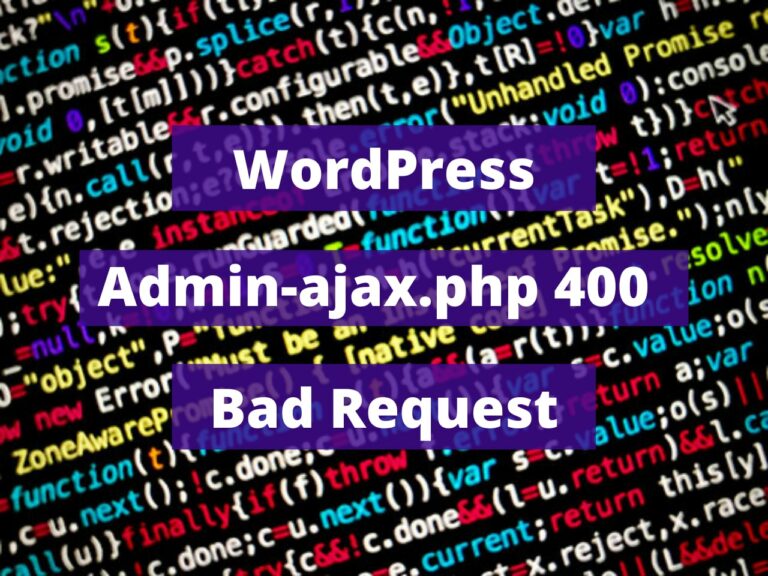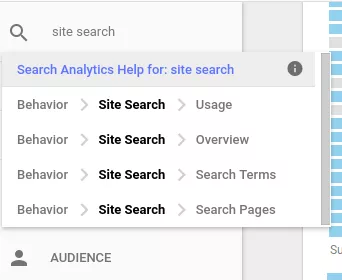Admin-ajax.php is a crucial file in WordPress that facilitates communication between the server and the user’s browser through AJAX (Asynchronous JavaScript and XML). However, encountering a 400 Bad Request error associated with admin-ajax.php can be a frustrating experience for WordPress users. In this article, we’ll delve deeper into the causes of this issue and explore effective ways to resolve it.
Causes of Admin-ajax.php 400 Error:
Plugin or Theme Conflicts:
Often, conflicts between plugins or themes can lead to the 400 Bad Request error. Check if the issue persists when deactivating all plugins or switching to a default WordPress theme. If the error disappears, you can then pinpoint the conflicting element by reactivating them one by one.
Incorrect AJAX URL:
The admin-ajax.php file relies on a correct AJAX URL for proper functioning. Incorrectly configured URLs, whether due to a misconfiguration in a theme or a custom code snippet, can trigger the 400 error. Verify that your AJAX requests are pointing to the right URL.
Server Configuration Issues:
Server-related issues, such as restrictive server settings or inadequate server resources, can contribute to the 400 error. Ensure that your server meets the WordPress requirements and check server logs for any relevant error messages.
Script Errors or Malware:
Malicious scripts or malware on your WordPress site can interfere with the proper execution of admin-ajax.php, leading to a 400 error. Regularly scan your site for malware and keep all scripts up-to-date to minimize security vulnerabilities.
Resolving Admin-ajax.php 400 Error:
Update WordPress Core, Themes, and Plugins:
Ensure that your WordPress core, themes, and plugins are up-to-date. Developers frequently release updates to address bugs and enhance compatibility, and running outdated software could contribute to the 400 error.
Check AJAX Requests:
Review your AJAX requests to confirm they are correctly formatted and pointing to the admin-ajax.php file. Make sure that the nonce verification is also implemented properly to enhance security.
Investigate Server Issues:
Examine server logs for any indications of server-related problems. Consult with your hosting provider to ensure that your server environment is optimized for WordPress.
Debugging and Error Logging:
Enable debugging in WordPress to get more detailed error messages. This can help you identify the specific cause of the 400 error and streamline the troubleshooting process. Remember to turn off debugging once the issue is resolved to maintain site performance.
Resolving the Admin-ajax.php 400 Bad Request error in WordPress requires a systematic approach to identify and address the underlying issues. By investigating potential causes such as plugin conflicts, incorrect AJAX URLs, server problems, and ensuring that your WordPress installation is up-to-date, you can effectively troubleshoot and resolve this common problem. If you encounter difficulties during the process, seeking assistance from WordPress forums or consulting with a developer may provide valuable insights tailored to your specific situation.
Read WordPress admin-ajax 400 bad request for more information.
I’ve been working on ajax lately. The tutorials you find on the net are all very similar and relatively easy to implement. But I always get a bad request 400 on my ajax-admin.php
If your WordPress search is not working, I’d suggest you read this article on WordPress custom Search.
After a long and intensive search, I have now found out that’s because of the time of integration.
Creating a WordPress site search is easily explained in this post, although it isn’t a prerequisite.

If I use the ‘init’-action-hook to initialize script and wp_localize_script, everything works fine. So the code itself must be correct.
But if I use, e.g.,’wp_enqeue_scripts’-action-hook, I always get a bad request.
If you are looking to add a search results page, don’t miss this post.
The problem with this is:
I would like to have the functions in an extra PHP and only load them if needed on a particular page. For this, I need, for example, is_page(). But is_page() works at the earliest when I hook the function with the inclusion into the ‘parse_query’-action-hook:
So then in my-page-test-functions.php, ‘init’ does not work, I suppose because init comes before parse_query.
This post will help you create a search bar on your WordPress site.
If you were thing about adding a Google search bar on your WordPress site, we’ve got you covered there as well.
Is there a best practice to organize this so it works? Or how can I fix the admin-ajax.php bad request when using the ‘wp_enqeue_scripts’-action-hook?
Hard to describe, but I hope it is pretty understandable.
I think the only thing missing here is that you need to move add_action(‘wp_ajax_nopriv_ajaxlogin’,’ajax_login’); outside ajax_login_init .
That code registers your Ajax handler, but when you only run it on wp_enqueue_scripts, it’s already too late, and wp_ajax_nopriv_ hooks are already run.
If you wish to add a search widget on your WordPress page, here is a guide to help you.
Now it’s more clear that you only want to load the JavaScript on that particular page. This means you need to put your is_page() inside ajax_login_init() . I’ve updated the code accordingly.
Even after following all steps precisely, sometimes we do not get desired results. For example, not seeing a search box on the WordPress page could be possible for quite a few reasons.
Now, why didn’t your solution work?
The is_page() check meant that your functions file was only loaded on that specific page. ajax_login_init() gets called and your scripts enqueued. So far, so good.
Now your script makes the ajax call. As mentioned in the comments, ajax calls are not aware of the current page, you’re on. There’s a reason the file sits at wp-admin/admin-ajax.php. There’s no WP_Query, and thus is_page() does not work during an ajax request.
If you feel that your site and your audience require an Advanced search, you can read this post on how an advanced search form is helpful to find relevant search results. Additionally, WordPress advanced search form custom fields are a different subject and not for every website.
Since that does not work, sw18_page_specific_functions() won’t do anything in an ajax context. This means your functions file is not loaded, and your ajax handler does not exist.
That’s why you always need to include that functions file and move that is_page() check inside ajax_login_init()
You can skip to this article if the problem isn’t solved yet.




